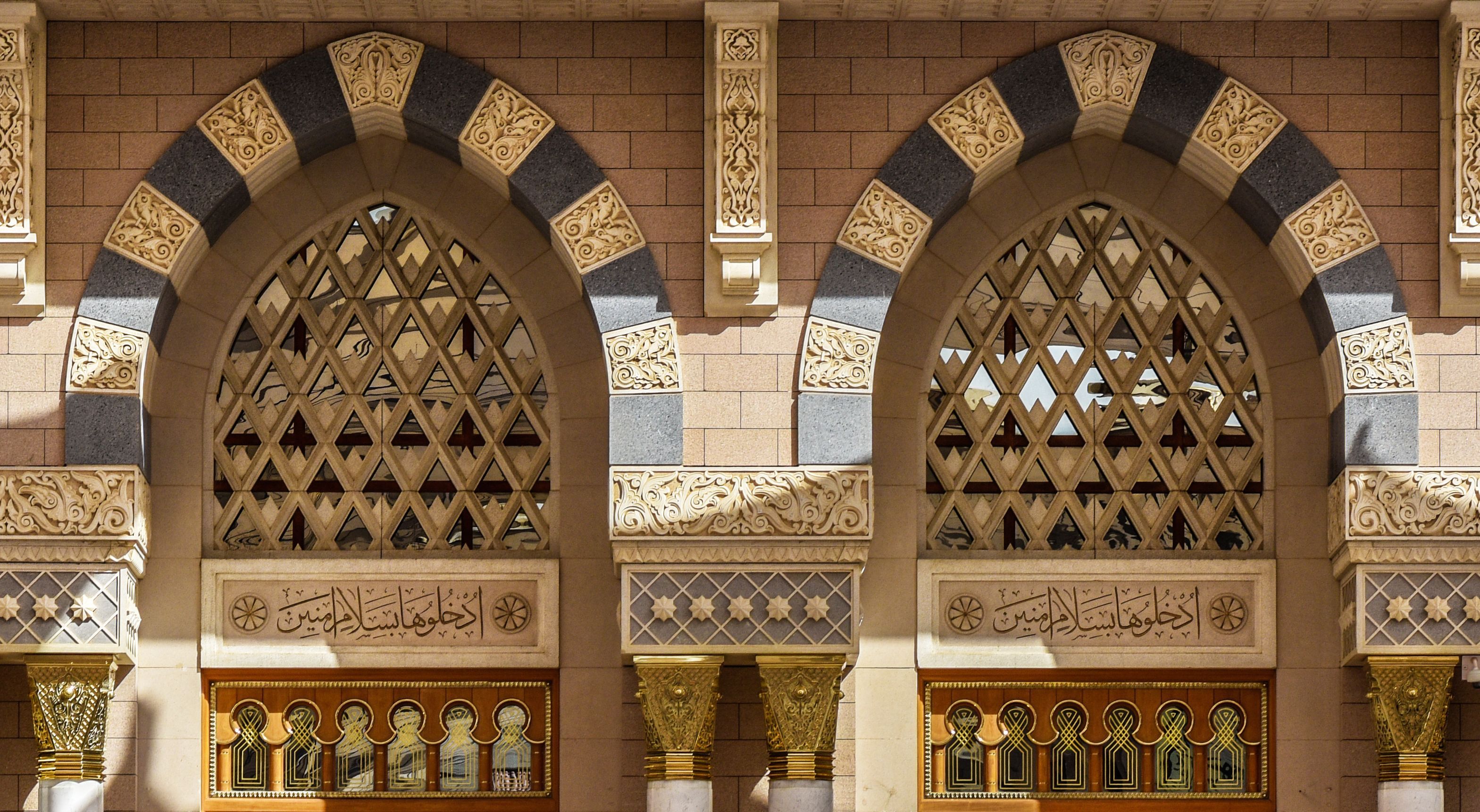Virtues of praying in the Grand Mosque of Makkah
One of the virtues of the Grand Mosque of Makkah is that a prayer in it is equivalent to 100,000 prayers elsewhere. The Prophet, blessings and peace be upon him, said, “And a prayer in the Sacred Mosque is better than a hundred thousand prayers elsewhere.”
This virtue includes all the mosques and attached units of Makkah that are located within the boundaries of the Haram. It also applies to obligatory and supererogatory prayers.
In crowded times and seasons, such as the month of Ramadan, residents in Makkah can pray in any mosque within the boundaries of the Haram area, and thus obtain the great reward for praying in the Haram.
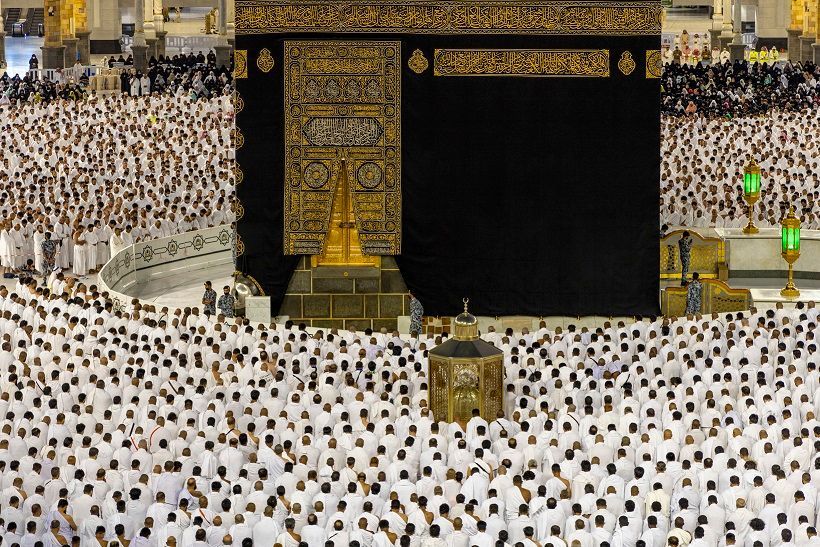
What items are banned in Haram?
Banned items in the Grand Mosque include:
- Foods and drinks (except for coffee, dates and water)
- Sharp tools
- Flammable liquids
- Large bags and baggage
- Baby carriages
Pilgrims should not leave their luggage and personal belongings at the gates. They may lodge their belongings in the safe boxes in the outer courtyards of the Haram.
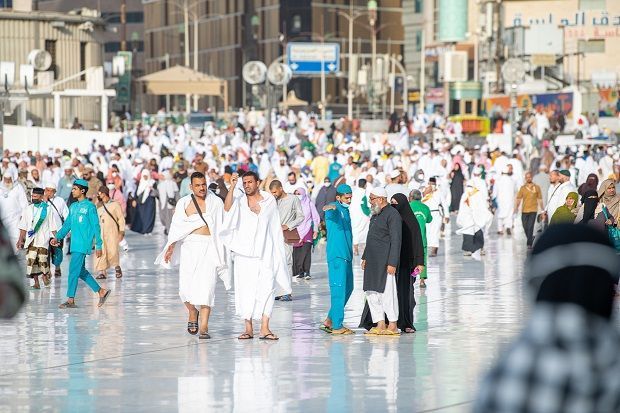
What items shall I take when I go to the Haram?
Before you go to the Haram, make sure that you carry the necessary items from the list below:
- A hotel card or a slip with your residence address on it
- Sunglasses and an umbrella
- A wallet, some cash and your ID
- A small handbag for keeping personal belongings
- Your mobile phone and make sure it is charged
- Paper tissues
- A plastic bag to keep your shoes in
Instructions and alerts:
- If you regularly take medications, make sure you carry them so that you can use them, if necessary.
- Make sure you have kept your passport and important items in a safe place before you go out.
- Before you go out, save your residence location on your mobile phone.
- If you need a chair to sit on, there are plenty of chairs at the gates of the Grand Mosque.
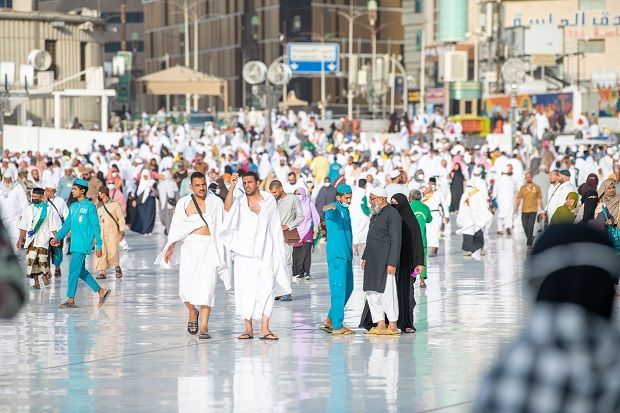
Friday prayer in the Grand Mosque
The Friday prayer is one of the greatest and best prayers, and is even more in the Grand Mosque, where the virtues of time, place and worship come together.
The merit of Friday: Friday is “the best day in which the sun ever rises,” said the Prophet (blessings and peace be upon him). There are many recommended acts and virtues that are specific to Friday, including: having a bath (ghusl), applying perfume, wearing the best clothes, going early to the mosque, reading Surat Al-Kahf, and a lot of supplications and praying on the Prophet (blessings and peace be upon him), and to eagerly look for the hour in which supplications are answered.
Avoiding crowds in the Haram at the time of Friday prayer:
It is only natural that visitors are keen to perform Friday prayers in the Grand Mosque, but this leads to overcrowding during the Hajj season, so here are some important instructions:
- Avoid jostling and crowding that may cause harm to you and others.
- Be sure to go early to prayer, and avoid rushing out directly after the prayer.
- If you are unable to come early or suffer from fatigue or exhaustion, do not go to the Haram for Friday prayer. In this way you avoid staying under the harmful rays of the sun at noon.
- Remember that praying in any mosque within the boundaries of the Sanctuary, you will receive the same amount of reward.
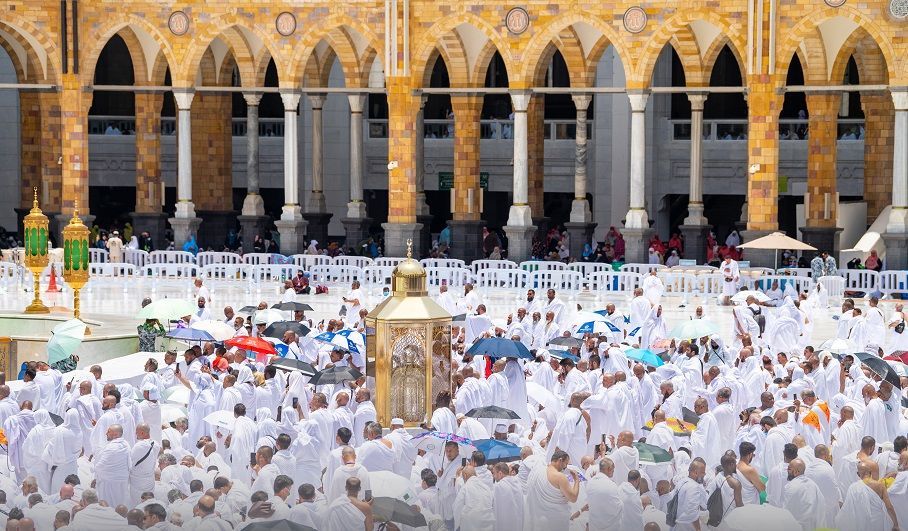
Children in the Haram
Parents can take their children of all ages to perform prayers in the Grand Mosque of Makkah. They must obtain ‘Umrah permits for children over 5 years old through the Rahat app.
Parents shall make sure that their child has a card or bracelet bearing his/her name and the parent's phone number. They shall always hold their child's hand, and shall not move away from them so that they won't get lost. Parents shall also make sure that their children do not disturb worshipers.
Drifters Care Center: The Drifters Care Center receives children who get lost in the Grand Mosque and hands them over to their families. It is supervised by the security force of the Grand Mosque of Makkah.
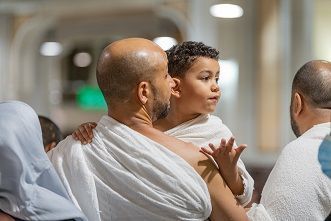
Women Prayer Halls in the Grand Mosque of Makkah
There are 68 women prayer halls in the Grand Mosque of Makkah. They are distributed as follows:
- 20 prayer halls in the Mataf courtyard, King Fahd expansion, and basements.
- 48 prayer halls in the third Saudi expansion.
These prayer halls are supervised by more than 120 female employees, who work throughout the day in four shifts. Some halls are allocated to women with disabilities. Several women prayer halls are equipped with smart robot guidance for fatwas, explaining how to perform rituals, issuing fatwas and answering questions, and communicating with sheikhs remotely in various languages.
Services provided by female employees in women prayer halls:
- Guidance and organization of the rows of women in the prayer halls.
- Ensuring smooth movement in women-only corridors and facilities, opening prayer halls, and closing the ones that get full.
- Offering advice to and raising awareness of women visitors, teaching them how to pray and perform ablution and funeral prayer, as well as holding sessions to correct and master recitation of the Holy Quran.
- In women prayer halls, guidance and counseling are provided in several world languages.
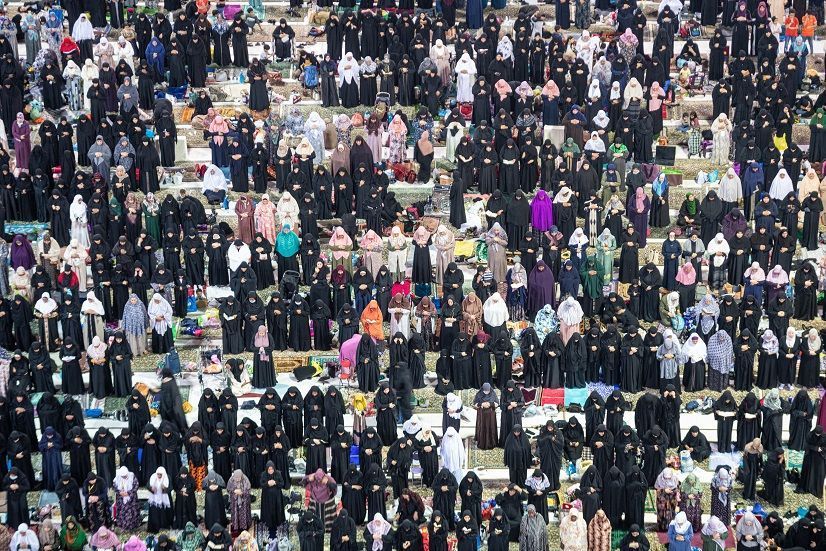
The virtue of Praying in the Prophet's Mosque
-
The reward for praying in the Prophet’s Mosque is a thousandfold the reward elsewhere. The Prophet, (blessings and peace be upon him), said, "A prayer in my mosque is equivalent to a thousand prayers elsewhere, except for the Sacred Mosque [of Makkah]."
-
It is desirable for a Muslim, if possible, to travel to the Prophet's Mosque to pray there. The Prophet, (blessings and peace be upon him), said, "Do not undertake a journey to visit any mosque, except for three mosques: the Sacred Mosque [of Makkah], this Mosque of mine, and Al-Aqsa Mosque."
-
The increased reward for praying in the Prophet's Mosque applies to both obligatory and supererogatory prayers.
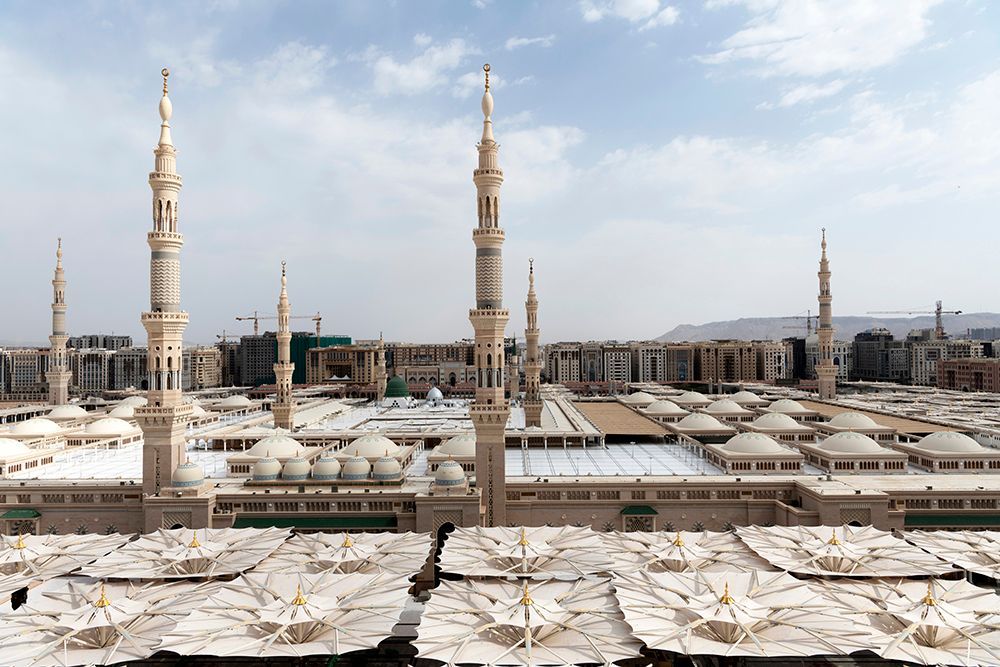
Greeting the Prophet (peace be upon him)
Visiting the Prophet's tomb
- It is desirable for a Muslim going to Madinah to visit the tomb of the Prophet, (blessings and peace be upon him), and to greet him. A prior reservation on mobile applications is not required.
The manner of visiting the tomb of the Prophet
- Visitors enter through As-Salam Gate at the front of the Prophet’s Mosque, and walk serenely and quietly. Upon reaching the opposite side of the Prophet’s Burial Chamber, the site of the honorable grave of the Prophet, (blessings and peace be upon him), they shall greet the Noble Messenger, saying: ""Peace, mercy and blessings of Allah be upon you, Messenger of Allah."" They shall also pray for the Messenger of Allah, (blessings and peace be upon him), move a step forward and greet Abu Bakr As-Siddiq, and another step forward to greet Omar bin al-Khattab.
Rules of visiting the Prophet's tomb
- Visitors should stand respectfully and politely. They shall not raise their voices. The Prophet, (blessings and peace be upon him), is revered both alive and dead. When greeting him, a visitor shall stand as close to him as possible, facing the grave, and his stop to greet the Prophet shall be brief. He shall go out with serenity and dignity, to make space for others.
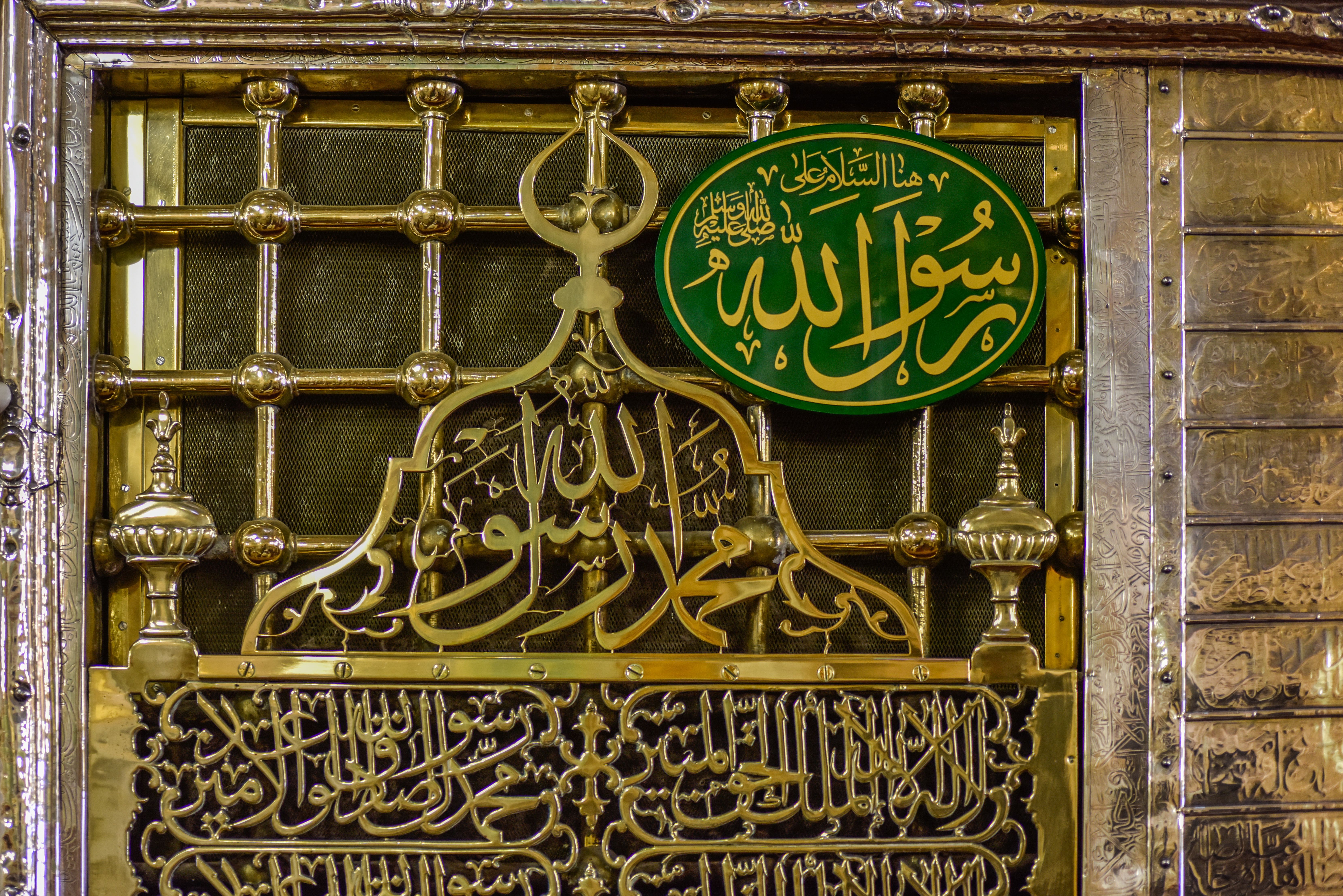
Prayer in the Exalted Rawdah
- Allah raises the stature of some places over others. The honorable Rawdah is one of the best and most blessed places that Allah Almighty has favored, and it is a garden of Paradise.
The Exalted Rawdah
- The honorable Rawdah is part of the Prophet’s Mosque. It is located at the front of the mosque, and extends from the Prophet's house, the honorable room, to his pulpit. The Rawdah is highly valued and impressive. It is a place where Allah's mercy and blessings descend. The Prophet, (blessings and peace be upon him), and his companions used to pray and supplicate there. It is the most blessed part of the Honorable Mosque. The prophet, (blessings and peace be upon him), said, “Between my house and my pulpit is a garden of Paradise.”
How shall I pray in the honorable Rawdah?
- Given the large number of those who wish to pray in the honorable Rawdah, entry is regulated to reduce crowding. Visitors shall make reservations via 'Rahat,' the official mobile apps. The time and gate of their entry will be scheduled.
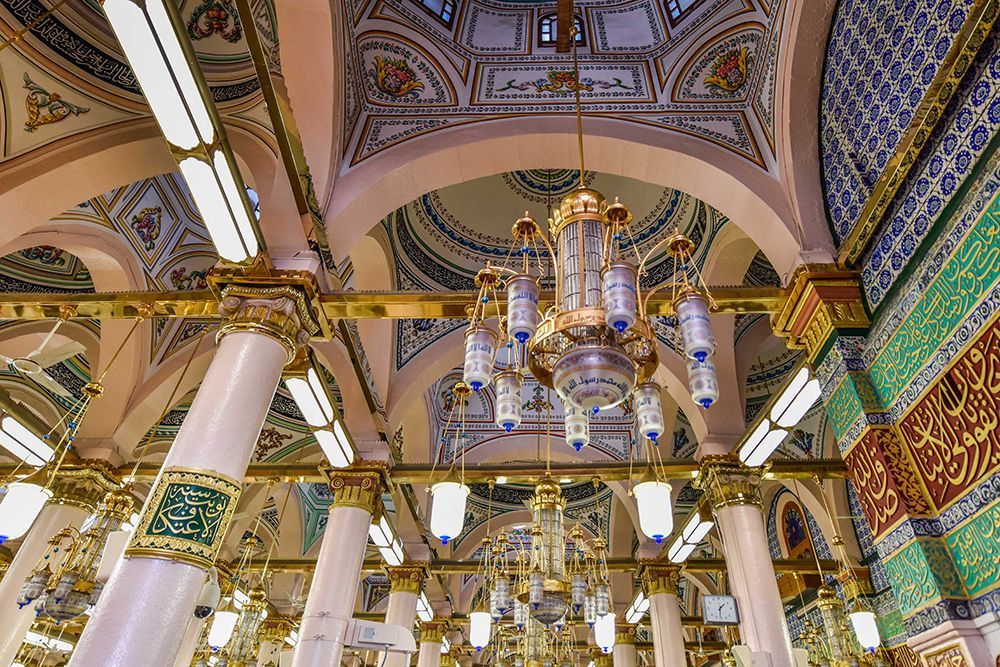
Friday prayer in the Prophet's Mosque
- The Friday prayer is one of the greatest and best prayers, and is even more so in the mosque of the Messenger of Allah (blessings and peace be upon him), where the virtues of time, place and worship come together.
Merits of Friday
- Friday is “the best day in which the sun ever rises,” as the Prophet (blessings and peace be upon him) said. There are many recommended acts and virtues that are specific to Friday, including: having a bath (ghusl), applying perfume, wearing the best clothes, going early to the mosque, reading Surat Al-Kahf, and a lot of supplications and praying on the Prophet (blessings and peace be upon him), and to eagerly look for the hour in which supplications are answered.
Avoiding crowds in the Haram at the time of Friday prayer It is only natural that visitors are keen to perform Friday prayers in the Grand Mosque, but this leads to overcrowding during the Hajj season, so here are some important instructions:
- Avoid jostling and crowding that may cause harm to you and others.
- Be sure to go early to prayer, and avoid rushing out directly after the prayer.
- During the Friday prayers, doors are open to the roof of the Prophet's Mosque.
- Avoid staying under the direct sun’s rays.
The Friday sermon is translated into several world languages
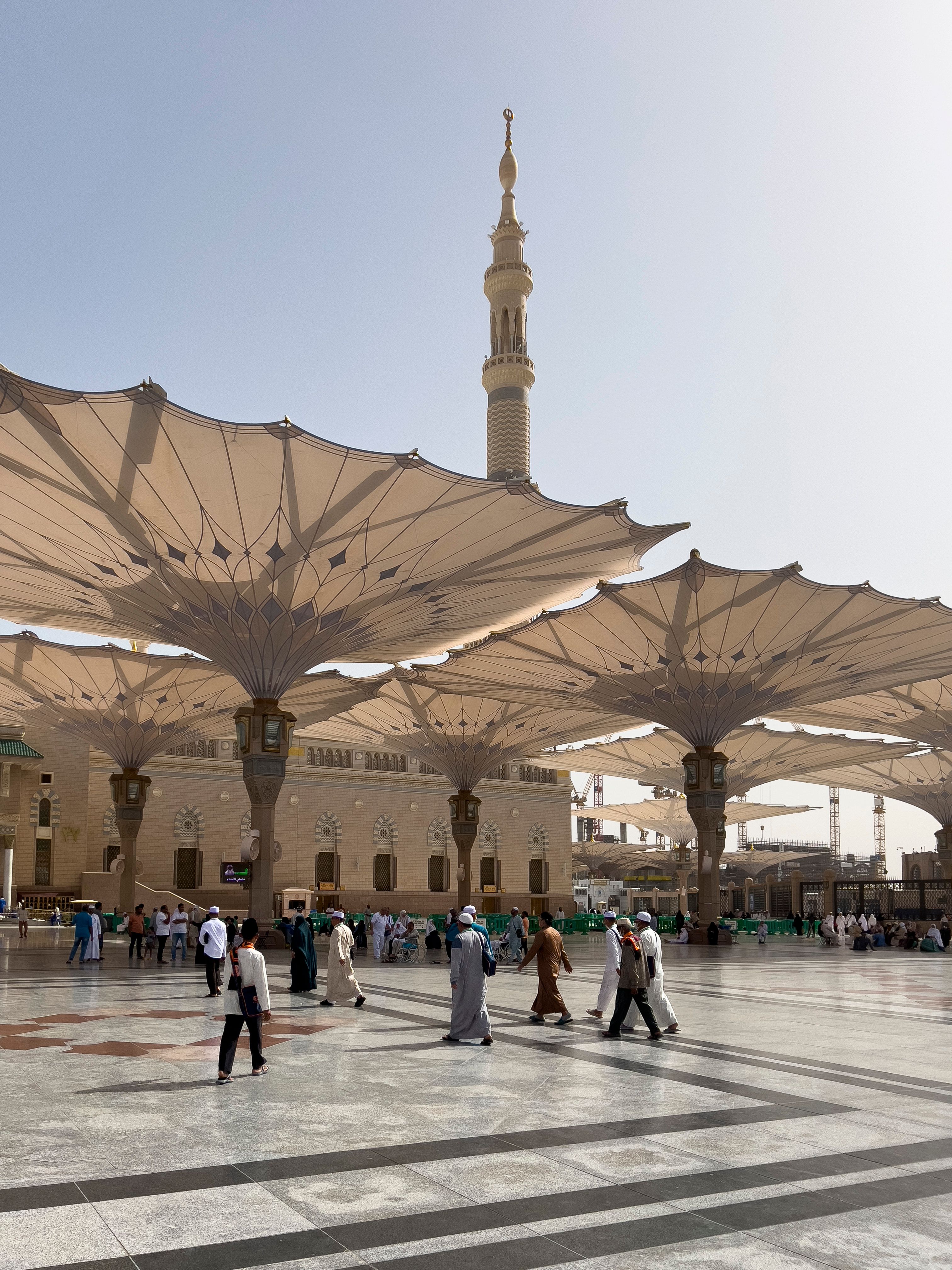
Women's Prayer Halls
There are two large prayer areas for women
- The western prayer hall which can be accessed through gates no. 13 through 17D.
- The northern prayer hall which can be accessed through gates no. 23 through 31B.
Women's visit of the honorable Rawdah
- Women can visit the honorable Rawdah, and pray there after making reservations through ""Rahat."" Women can access the honorable Rawdah from gates 25 and 29 in the Eastern Women’s Prayer Hall.
Women toilets and ablution lavatories
- Women toilets are available in all parts of the sanctuary, close to their prayer areas, and are marked with clear 'Women' sign.
WC Numbers
- Northern part of the mosque: 11B, 9, and 12A
- Eastern part of the mosque: 13A
- Western part of the mosque: 7A and 7B
